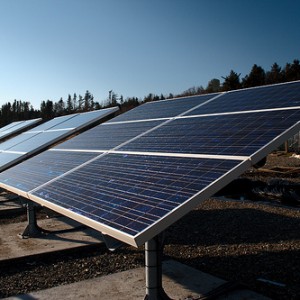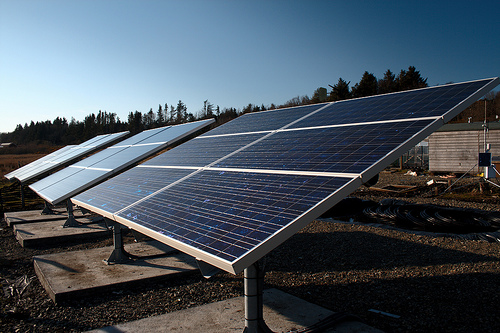A recent report from the Department of Energy and Climate Change of the UK reveals that renewable energy sources are now the main contributor of electricity in Scotland.
The report published in The Scotsman, a daily paper in the country, outlined figures that showed renewable energy sources, including solar, wind, hydro and biomass, generated 32 per cent more electricity than any other source of power in the first two quarters of 2014.
Clean energy produced the highest of all energy sources with a record 10.3 terawatt-hours of power. Second is nuclear with 7.8 terawatt hours, third is coal which generated 5.6 TWh, and the least are gas-fired power stations contributing around 1.4 TWh.
“We have joined the pioneer nations who are leading the way to a 100 percent renewables, zero-carbon world,” says Dr. Richard Dixon, director of Friends of the Earth Scotland.
Scotland working toward 100% renewable energy
“Becoming the largest single source of electricity in Scotland is a tremendous milestone on the way to meeting all of our electricity demand from green energy sources in just six years’ time,” he continues.
“Wind turbines in Scotland alone generated enough electricity to supply three million homes in the UK—equivalent to 126 percent of the electricity needs of every home north of the Border,” he adds.
Previously, nuclear power is Scotland’s main source electricity. But according to Lang Banks, WWF Scotland director, “Last month, while nuclear reactors were forced to shut because of cracks, Scotland’s renewables were quietly and cleanly helping keep the lights on in homes across the country.”
Critics strengthen opposition to wind energy expansion in Scotland
There are others who were not as happy with the inclusion of wind energy in the renewables mix. “Wind is unreliable and expensive and directly responsible for plunging Scots into fuel poverty,” says Linda Holt, a member of Scotland Against Spin.
Her group works to protect the rural landscape from wind turbines and the country from “the government’s unsustainable wind energy policy.”
Conversely, others pushing for renewables are ecstatic with the report.
Scotland’s progressive energy policy celebrated in fight against climate change
“The announcement that renewables have become Scotland’s main source of electricity is historic news for our country and shows the investment made in the sector is helping to deliver more power than ever before to our homes and businesses,” says Niall Stuart, the chief executive of Scotland Renewables.
“This important milestone is good news for anyone who cares about Scotland’s economy, our energy security and our efforts to tackle climate change,” he explains.
Every unit of power generated from renewables means less carbon emitted from the burning of fossil fuels, decreases our reliance on imported energy and supports jobs and investment in communities across Scotland,” Stuart adds.
The leader in the United Kingdom for renewable energy has always been Scotland. This country comprises just 10 per cent of the UK’s total population and yet it generates one third of the union’s renewable energy. The loftier goal of its government is to supply 100 per cent of its electricity demand from renewables by 2020.
Photo by Michael Maclean


